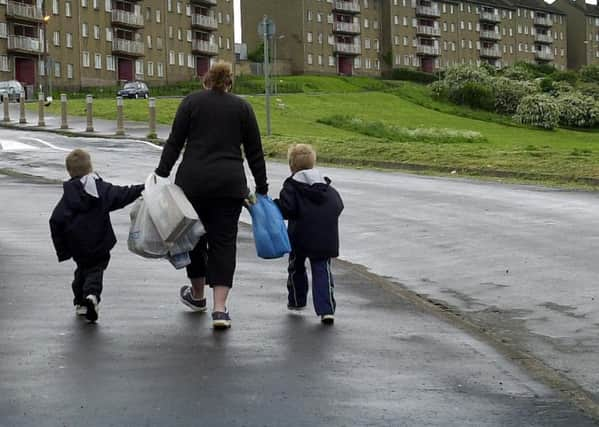5000 children ‘worse off’


Figures from the Scottish Parliament Information Centre (SPICe) show that Chancellor George Osborne’s changes to the Tax Credit system will leave 197,200 Scottish families with 346,000 children poorer.
Figures for the Cumbernauld and Kilsyth constitutency area show 2800 families with at least one working parent will be affected, and those families have 4900 children.
Advertisement
Hide AdAdvertisement
Hide AdA report by the Institute for Fiscal Studies shows that most children in poverty live in working households.
Jamie Hepburn, the MSP for Cumbernauld and Kilsyth, said: “The Tories’ shameful cuts were always going to hammer those in our society who were already struggling to get by – and these figures show that it is children who are going to pay a particularly heavy price.
“This policy is a disaster and a heartless attack on those struggling to get by. These figures also reveal that the majority of these children come from families where at least one parent is in work.”
Westminster representative Stuart McDonald MP added: “This local breakdown of the figures really brings home just how wide reaching these cuts will be.
Advertisement
Hide AdAdvertisement
Hide Ad“Many families depend on these tax credits. Cutting tax credits will only increase poverty and create more social inequality.
“It is time for these powers to be transferred to Scotland. These ideological cuts will only push more families into crisis and force children into poverty, it is nothing short of shameful.”
Scottish Conservative welfare spokesman John Lamont said: “It is shameful that Jamie Hepburn and Stuart McDonald are using this for political gain.
“The SNP like to bang the drum about welfare reform, but if Scotland had become independent last year it would have caused economic meltdown.
Advertisement
Hide AdAdvertisement
Hide Ad“Our welfare reform measures have actually worked in reducing poverty by getting people off benefits and into jobs.
“We do realise that there will be certain circumstances when people need help from the state. That’s why we have a system in place, to help people when they most need it.
“Our measures have the potential to enhance living conditions and stop people from being trapped in welfare dependency.”